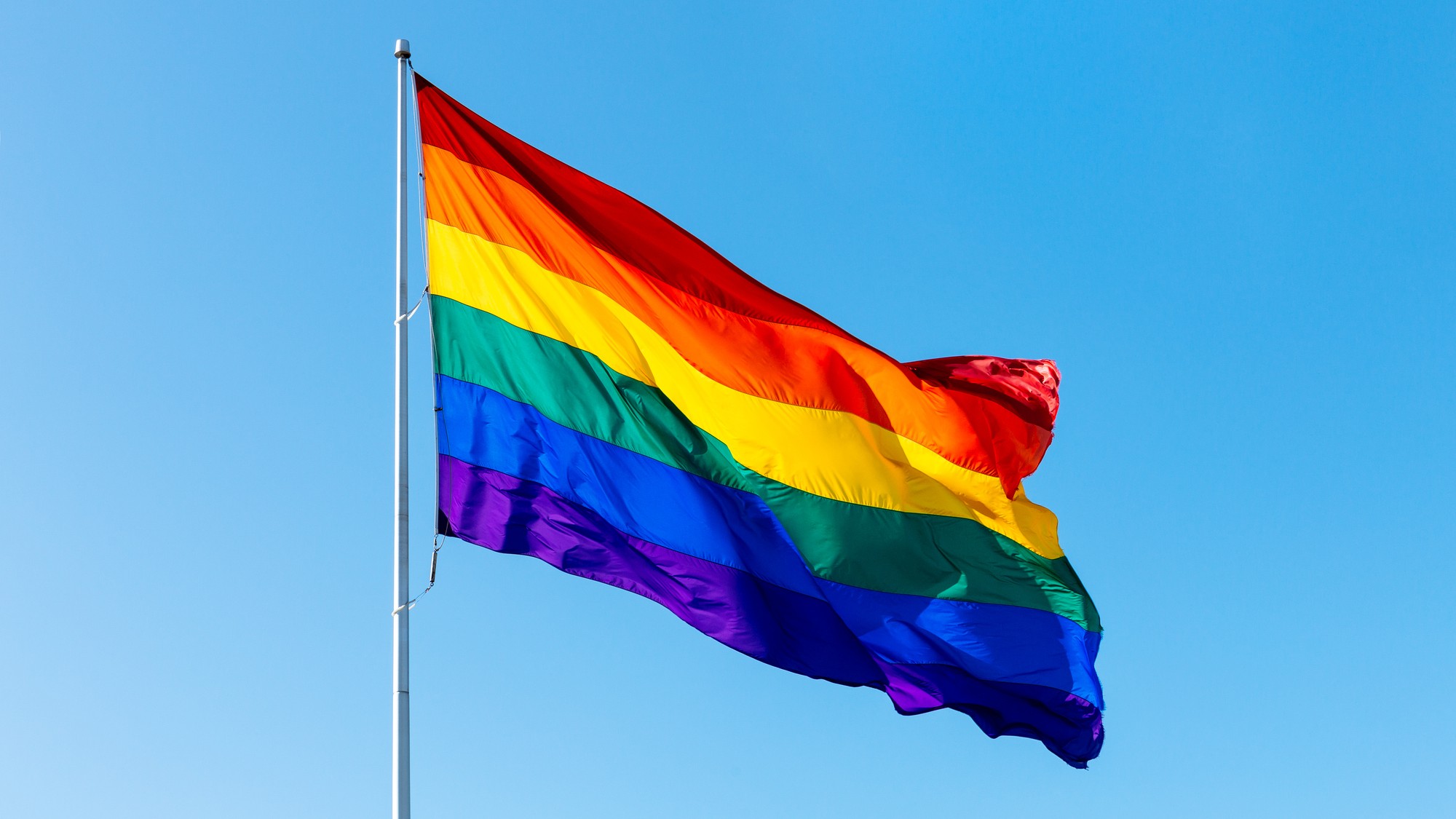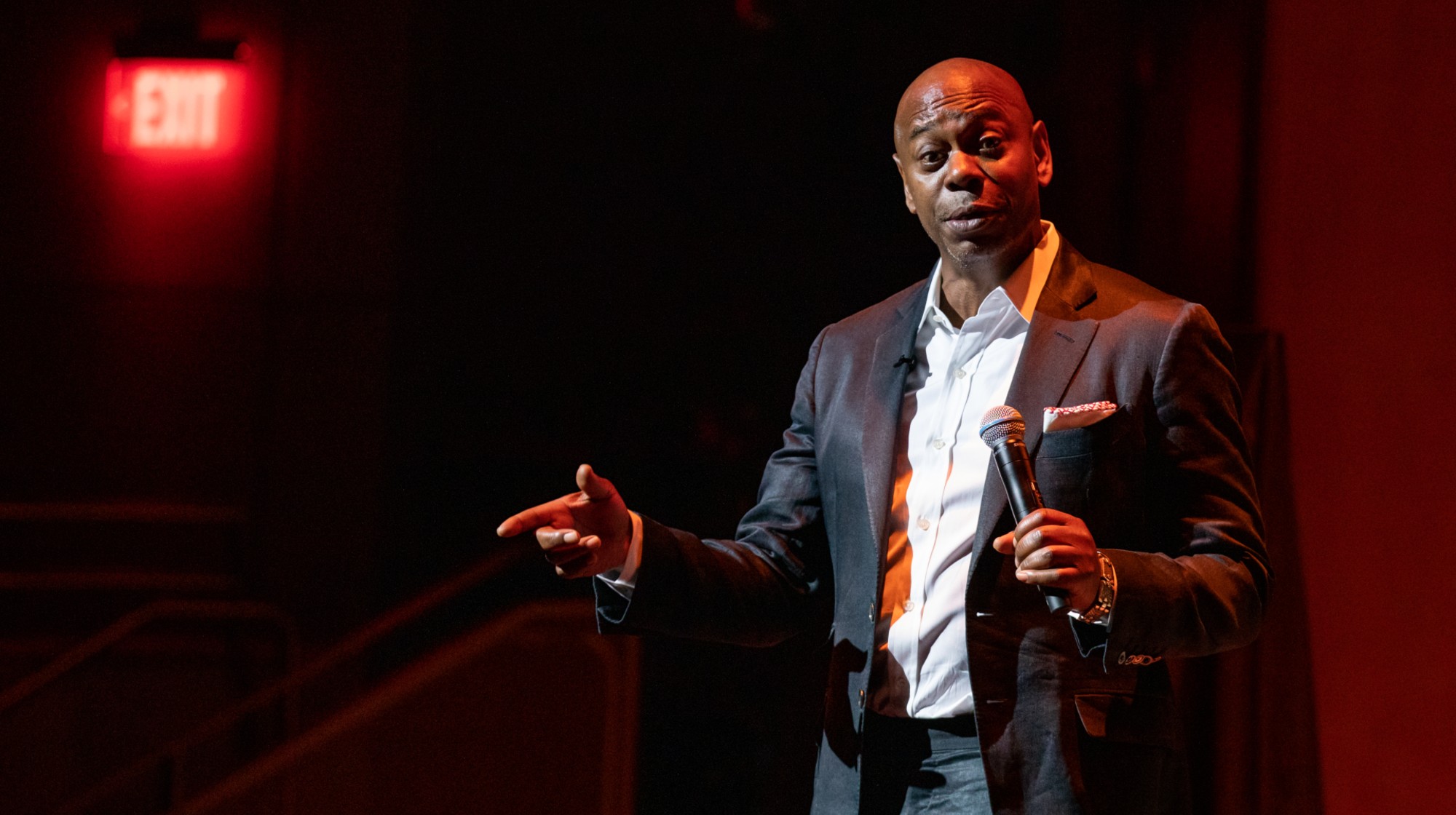Lavender marriage grows in generational appeal
Millennials and Gen Z are embracing these unions to combat financial uncertainty and the rollback of LGBTQ+ rights


A free daily email with the biggest news stories of the day – and the best features from TheWeek.com
You are now subscribed
Your newsletter sign-up was successful
Lavender marriage is getting a generational remix. Historically, these unions were often implemented to protect queer individuals. They can also involve “one queer individual marrying another queer person or a heterosexual person of the opposite sex, strictly for the legal benefits and convenience,” said Vice. Now, Millennials and Gen Z are embracing the legal maneuver in response to not just the current regressive threat against LGBTQ+ rights but also to ease financial burden and relish the emotional support of platonic companionship.
Background
Lavender marriages “formed as a way of concealing same-sex attraction in a society where being openly queer could mean social ostracism, career ruin or even criminalization,” Gio Dolcecore, an assistant professor of social work at Mount Royal University, said at The Conversation. The terminology “mainly gained traction in early 20th-century Hollywood, where image was paramount and being openly queer could have ended careers,” said DW.
These unions were not ones of love and were usually “calculated arrangements, often orchestrated by studios or agents," said DW. However, “like any relationship, the reason people would choose to enter a lavender marriage differs from couple to couple,” said Them.
The Week
Escape your echo chamber. Get the facts behind the news, plus analysis from multiple perspectives.

Sign up for The Week's Free Newsletters
From our morning news briefing to a weekly Good News Newsletter, get the best of The Week delivered directly to your inbox.
From our morning news briefing to a weekly Good News Newsletter, get the best of The Week delivered directly to your inbox.
The latest
While considered an antiquated union in the U.S., especially since the legalization of same-sex marriage in 2015 and the broader societal acceptance of queer people, new circumstances have reignited the interest in lavender marriages. “Censorship of queer culture is on the rise as political and social movements directly attack the LGBTQ+ community,” said Dolcecore. This includes book bans, the criticism of drag performers and the ongoing attacks on the transgender community.
Along with the revitalized suppression of queer people, modern financial circumstances have affected marriages. “With rising health care and housing costs, marrying a trusted friend could offer stability,” said DW. Unfortunately, “romance doesn’t pay the bills.” The renewed interest in lavender marriages “reflects deeper shifts in how people view relationships,” in that marriage can just be a “legal contract that offers tangible benefits — tax breaks, health insurance, immigration status or even coparenting rights.”
The reaction
The reframing of lavender marriages for the purposes of financial stability can “erase the very real and often painful reasons these marriages existed,” Jennifer Gunsaullus, a sociologist, sexologist and relationship expert, said to Cosmopolitan. However, the original reason may not have disappeared entirely. “There are still many parts of the world where being openly queer is dangerous, even illegal,” Edward Reese, a gender and sexuality expert at the LGBTQ+ dating app Taimi, said to Vice. “In many states, a young person wouldn’t want to admit to their conservative parents they are not straight.”
There has also been a growing ideological divide between men and women globally, contributing to falling birth rates and fewer heterosexual marriages. The promise of a platonic partner with whom to share burdens is enticing. “It might be enough to be roommates with a best friend — until they end up in a hospital and there are no living relatives, or they are estranged and would not necessarily be the ones to be trusted with vital decisions,” said Reese.
A free daily email with the biggest news stories of the day – and the best features from TheWeek.com
“Learning the history of how queer and trans people survived and defended each other is critical,” said Them. Lavender marriages “represent an interesting nexus of love, relationships, legality and societal pressures.”
Devika Rao has worked as a staff writer at The Week since 2022, covering science, the environment, climate and business. She previously worked as a policy associate for a nonprofit organization advocating for environmental action from a business perspective.
-
 What to expect financially before getting a pet
What to expect financially before getting a petthe explainer Be responsible for both your furry friend and your wallet
-
 Pentagon spokesperson forced out as DHS’s resigns
Pentagon spokesperson forced out as DHS’s resignsSpeed Read Senior military adviser Col. David Butler was fired by Pete Hegseth and Homeland Security spokesperson Tricia McLaughlin is resigning
-
 Colbert, CBS spar over FCC and Talarico interview
Colbert, CBS spar over FCC and Talarico interviewSpeed Read The late night host said CBS pulled his interview with Democratic Texas state representative James Talarico over new FCC rules about political interviews
-
 Josh D’Amaro: the theme park guru taking over Disney
Josh D’Amaro: the theme park guru taking over DisneyIn the Spotlight D’Amaro has worked for the Mouse House for 27 years
-
 Quiet divorce is sneaking up on older couples
Quiet divorce is sneaking up on older couplesThe explainer Checking out; not blowing up
-
 How coupling up became cringe
How coupling up became cringeTalking Point For some younger women, going out with a man – or worse, marrying one – is distinctly uncool
-
 How AI chatbots are ending marriages
How AI chatbots are ending marriagesUnder The Radar When one partner forms an intimate bond with AI it can all end in tears
-
 A 34-year-old plane is at the center of the UPS crash
A 34-year-old plane is at the center of the UPS crashIn the Spotlight Many air cargo companies use planes that are this old
-
 Saudi comedy fest exposes free speech schism in stand-up
Saudi comedy fest exposes free speech schism in stand-upIN THE SPOTLIGHT The decision by some of stand-up’s biggest names to attend a festival in a nation infamous for its censorship has the comedy world picking sides and settling old scores
-
 Bad Bunny headlining the Super Bowl thrills and rankles
Bad Bunny headlining the Super Bowl thrills and ranklesIN THE SPOTLIGHT The Puerto Rican superstar’s upcoming halftime performance has fans ecstatic, even as some conservatives gripe
-
 BookTok is reviving publishing – but at what cost?
BookTok is reviving publishing – but at what cost?In The Spotlight Social media recommendations are boosting book sales but critics give the trend mixed reviews
